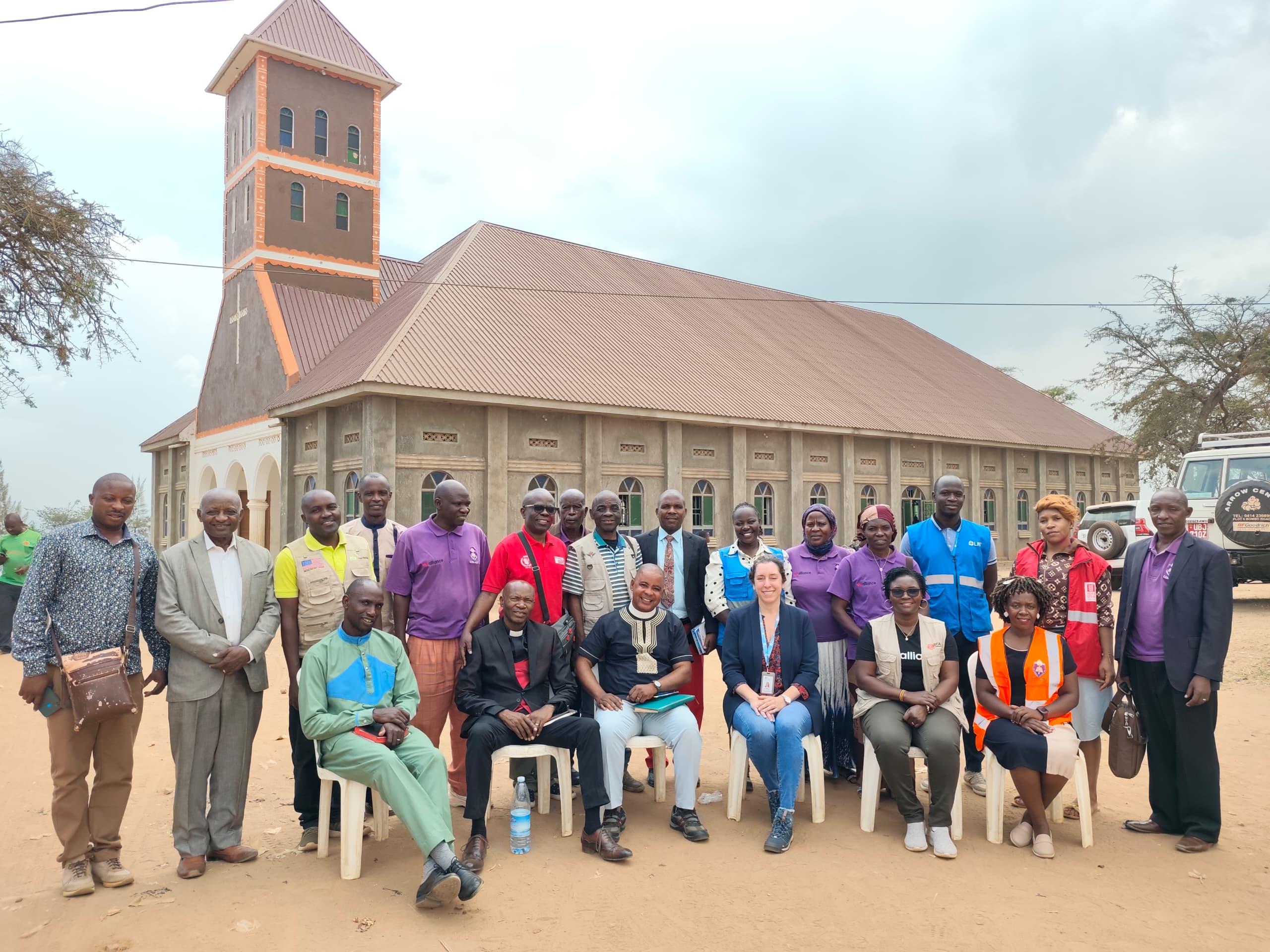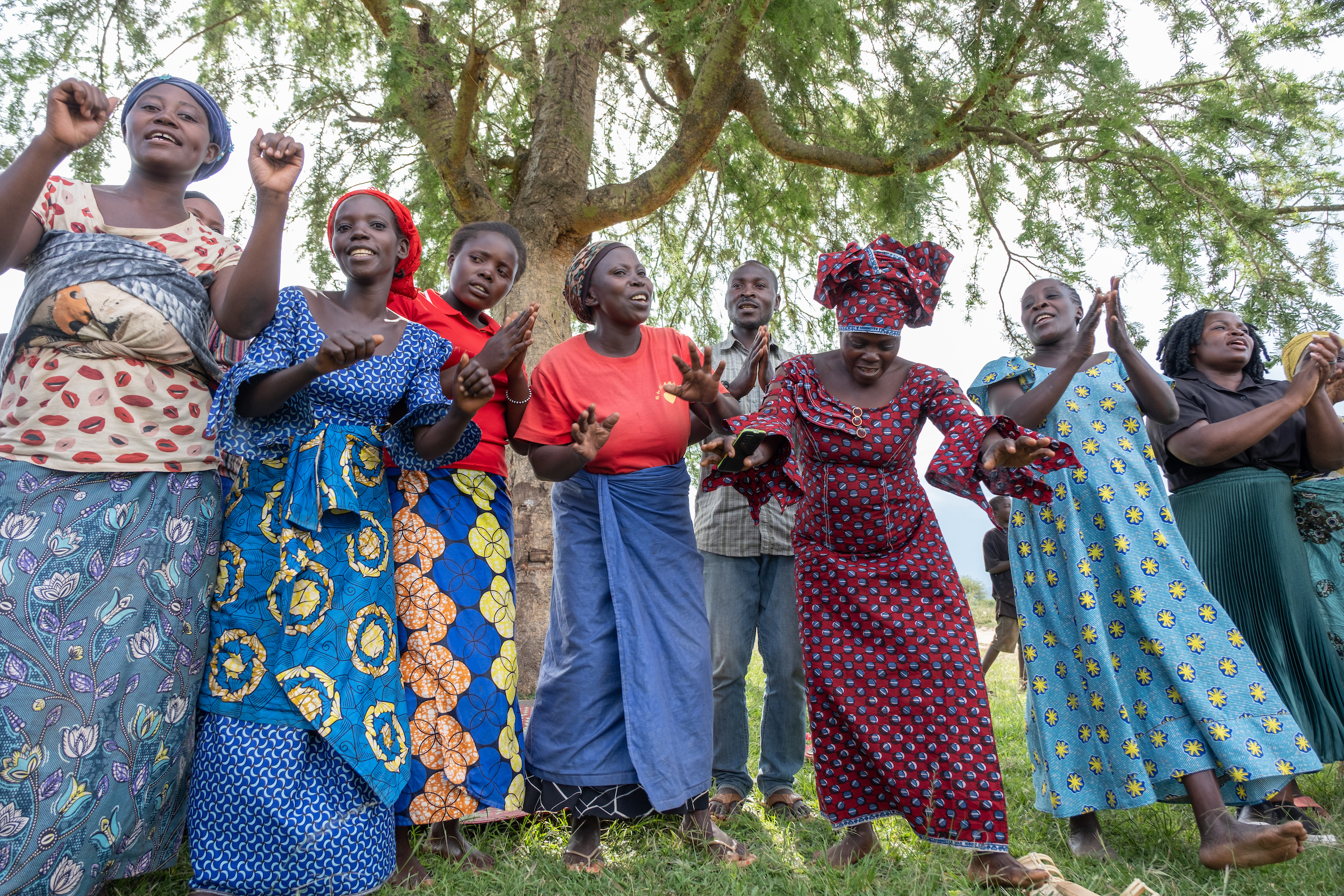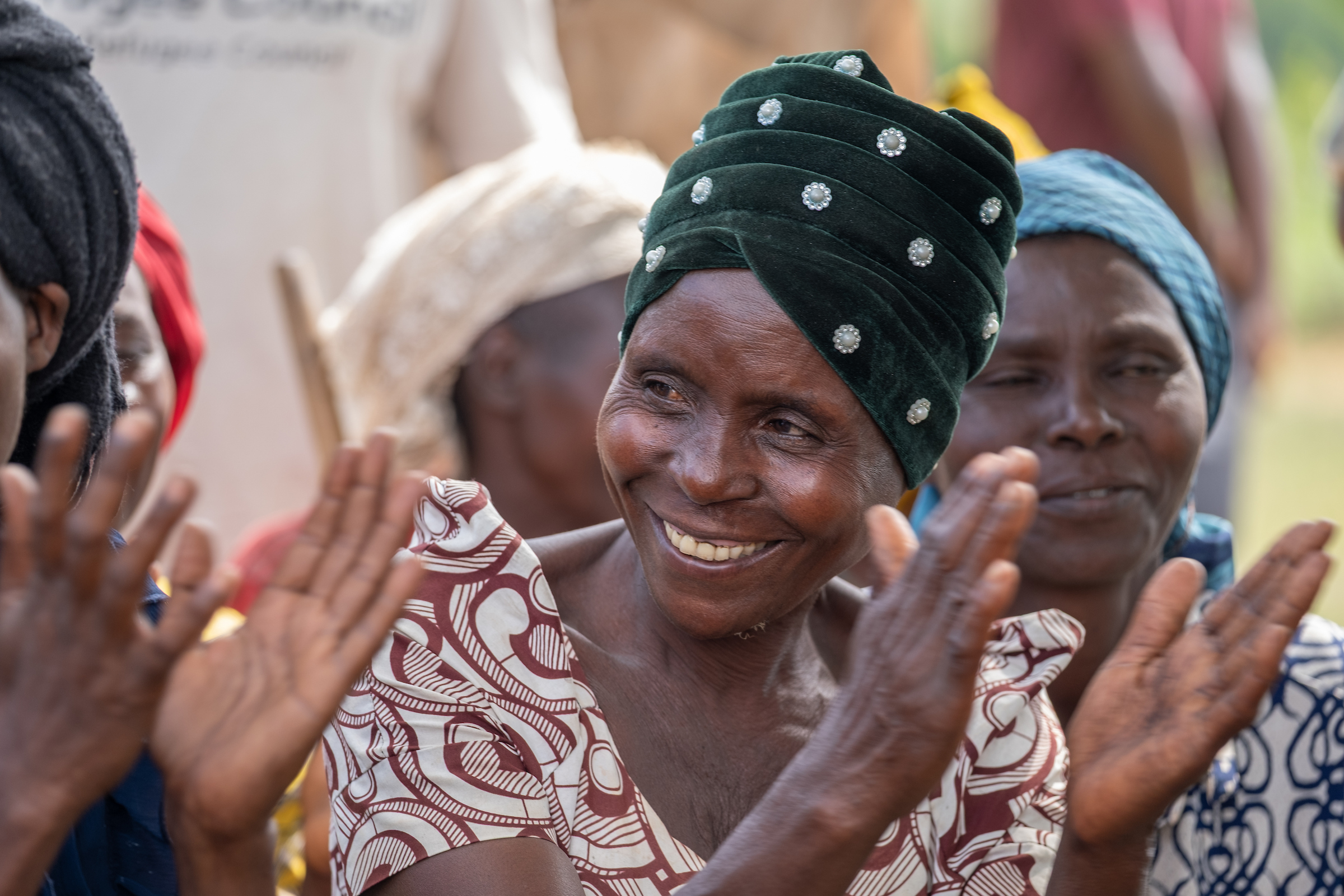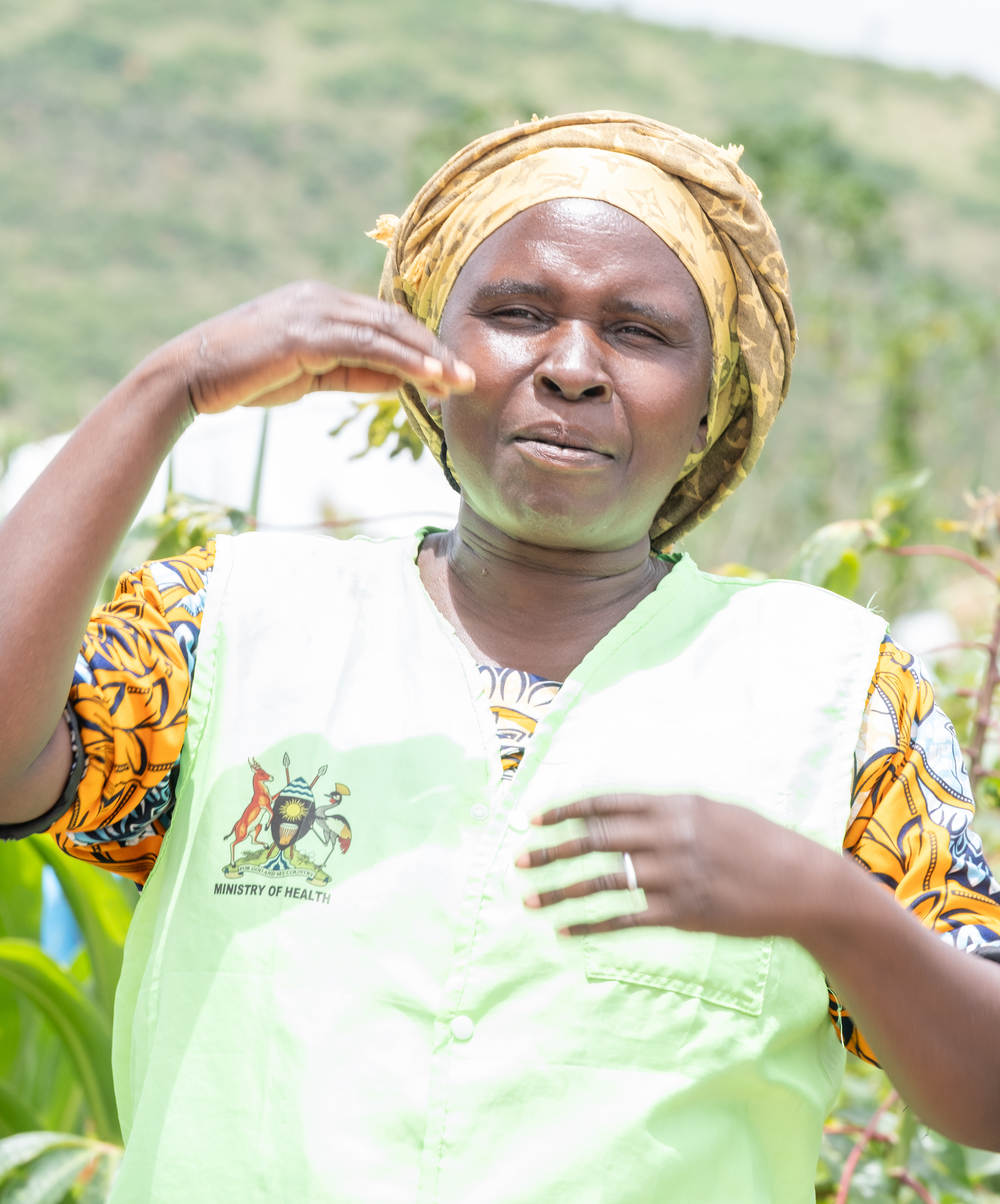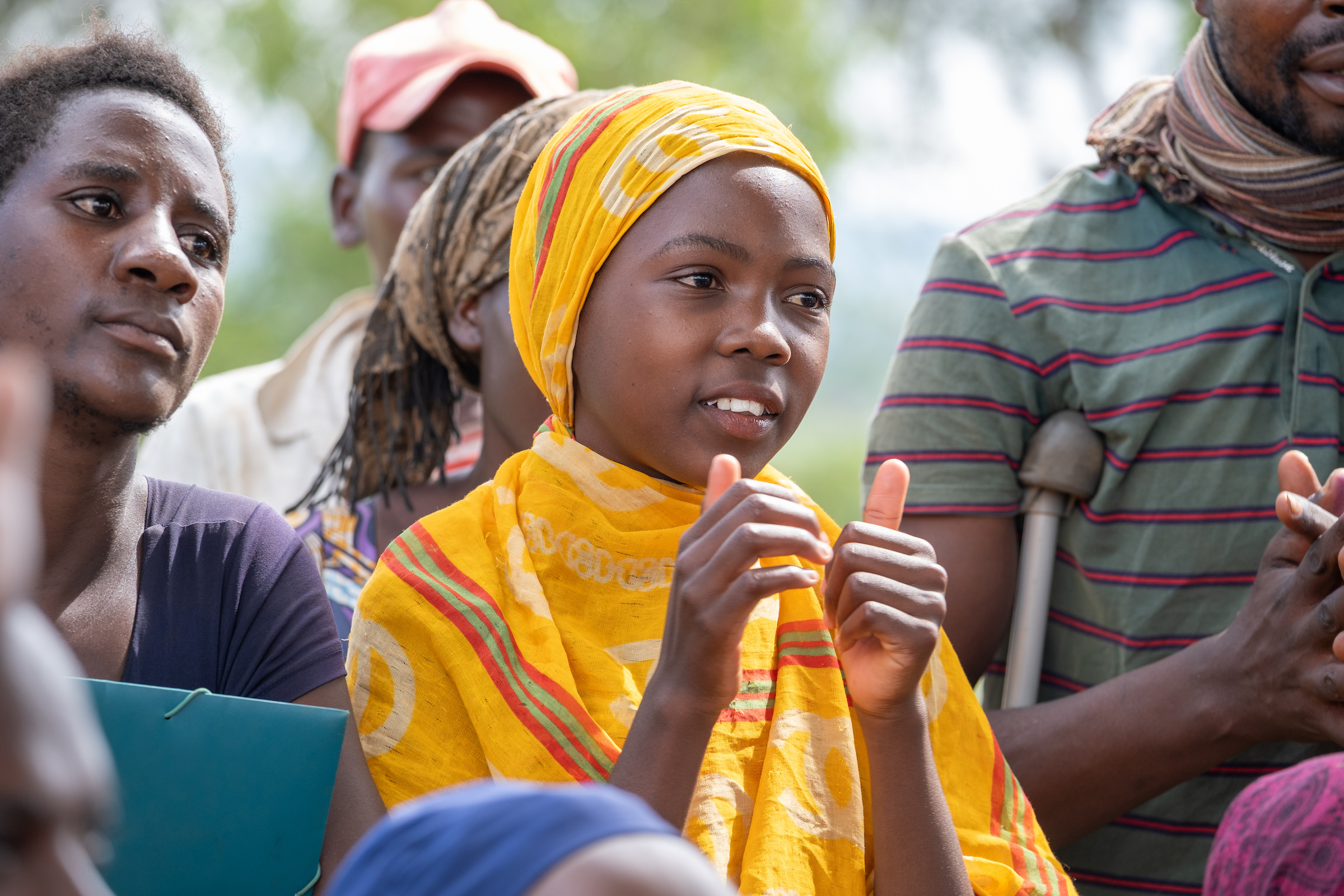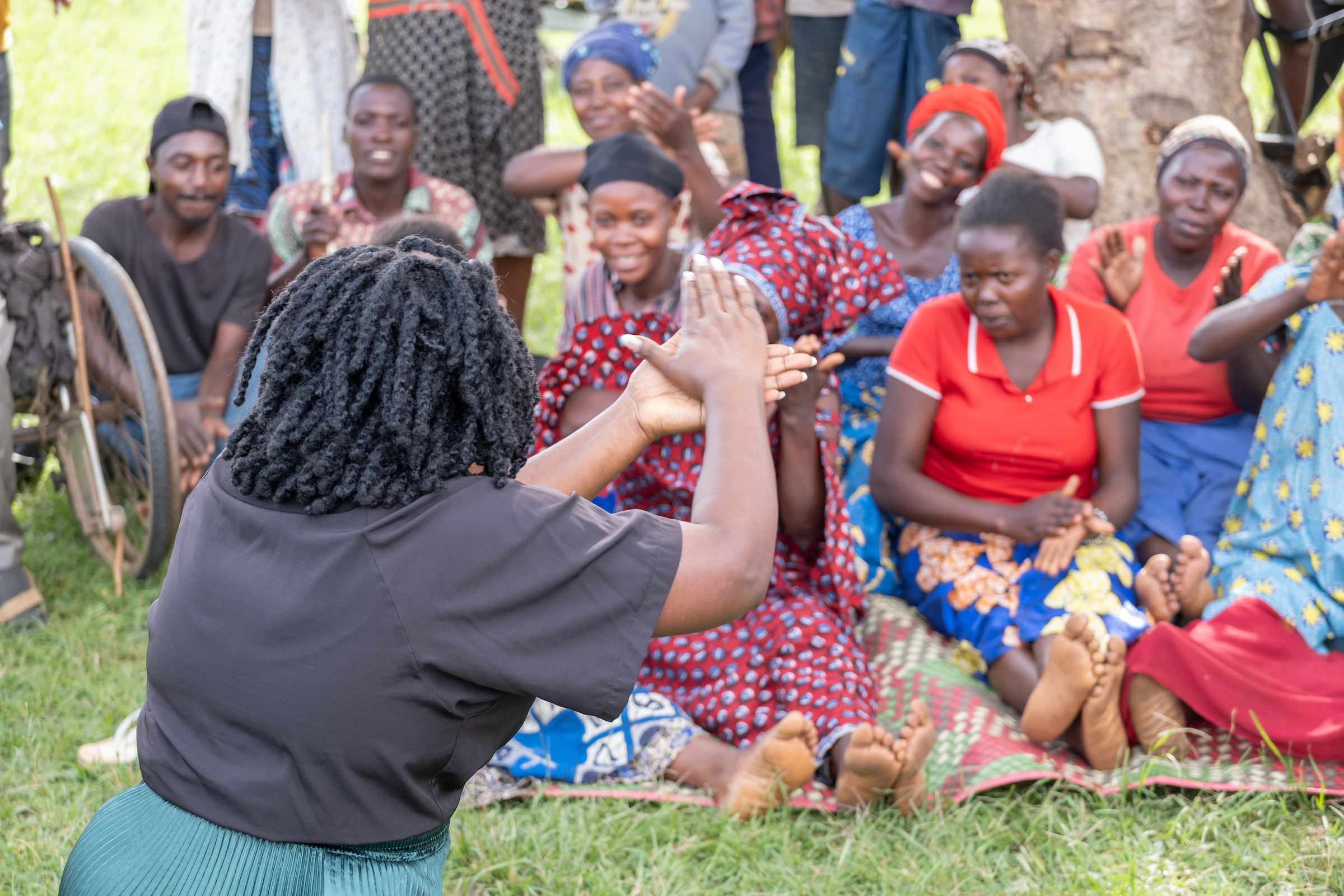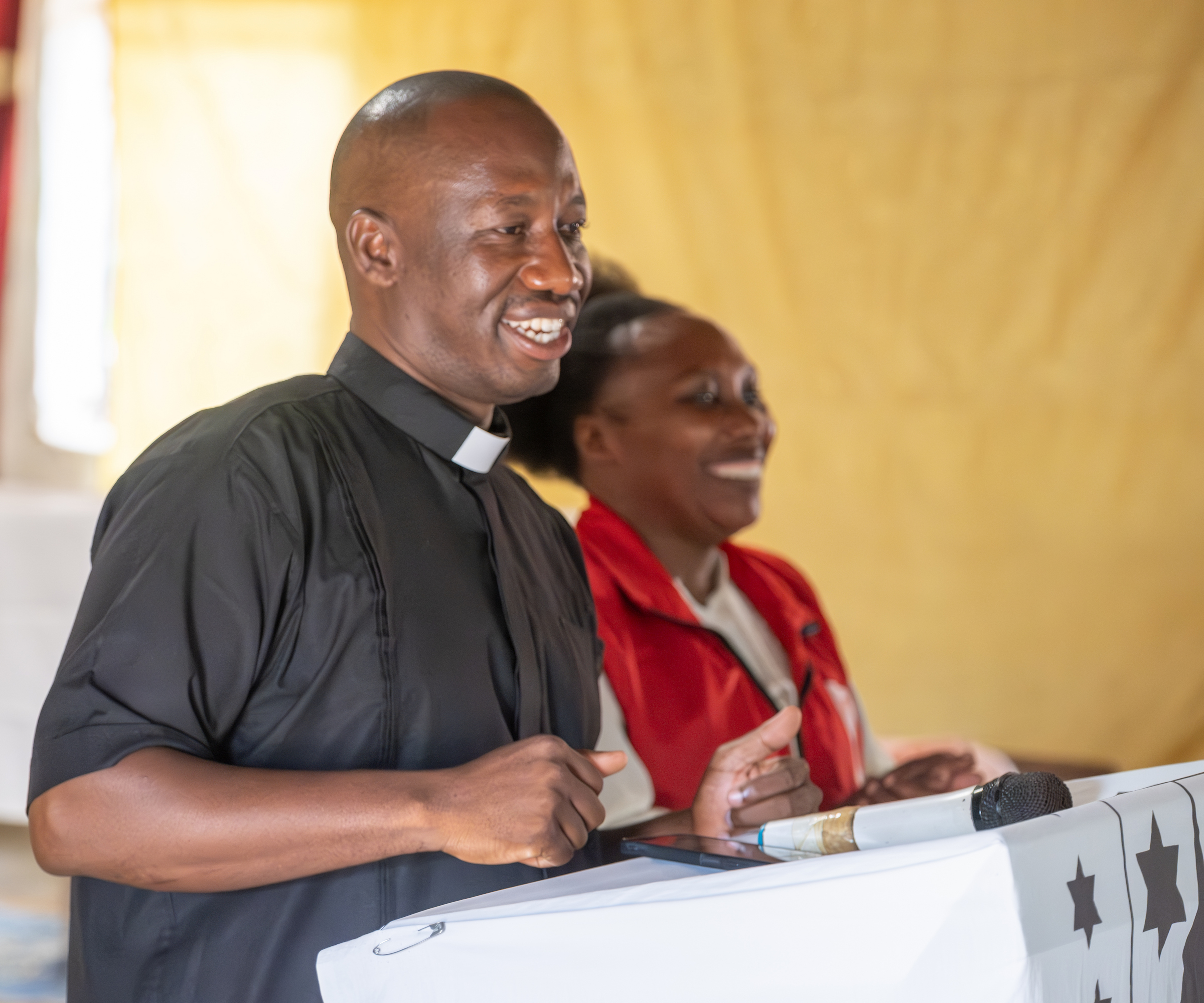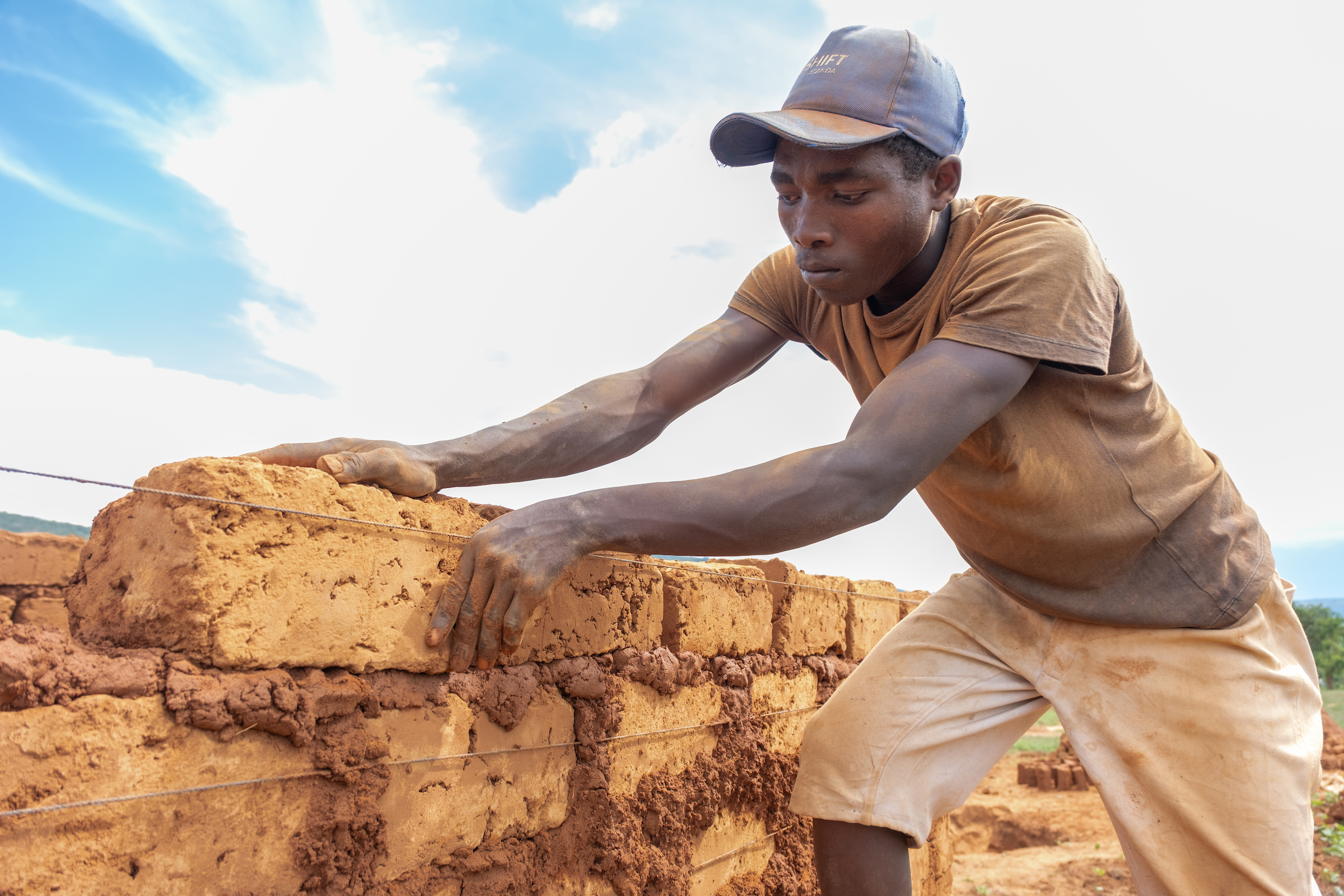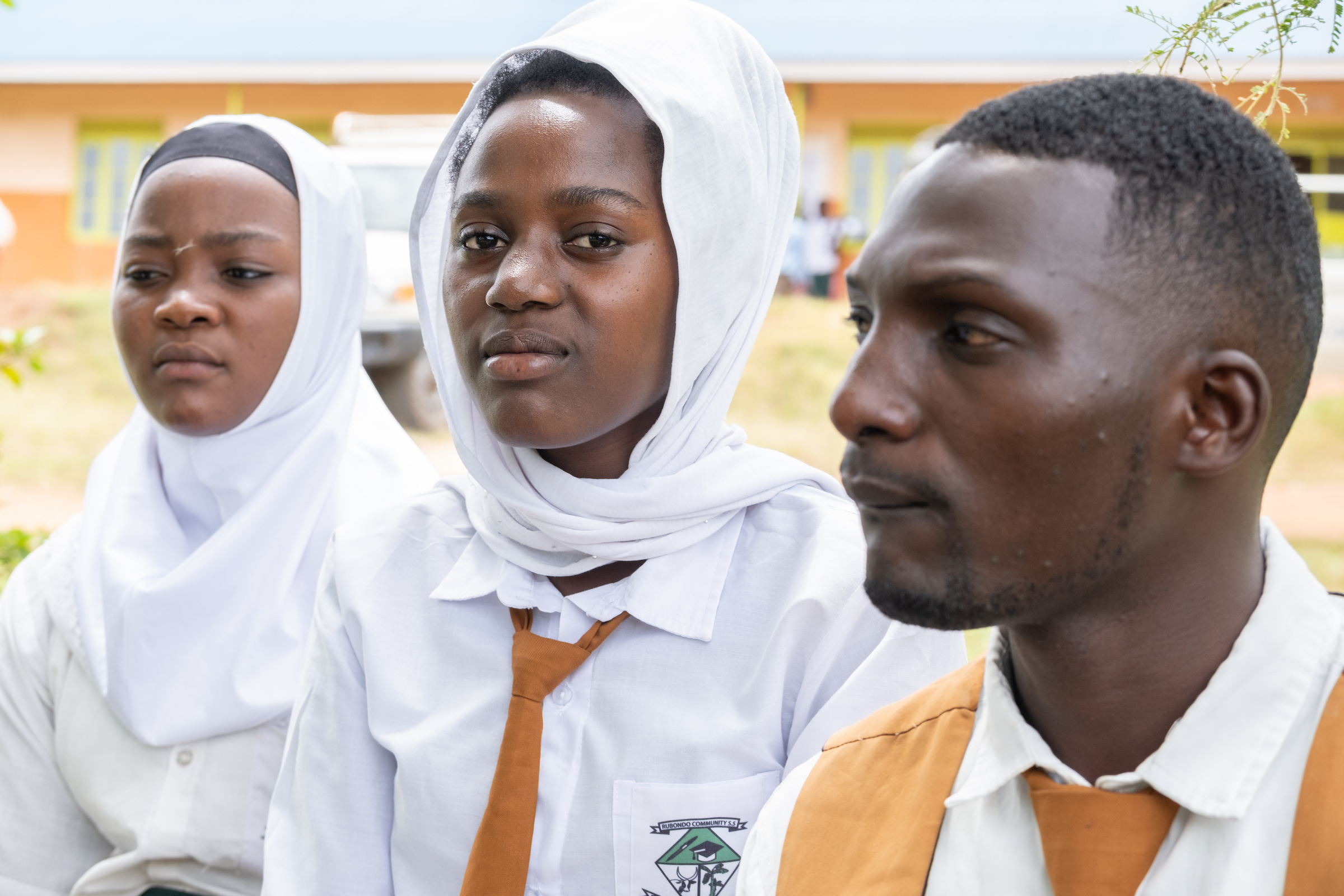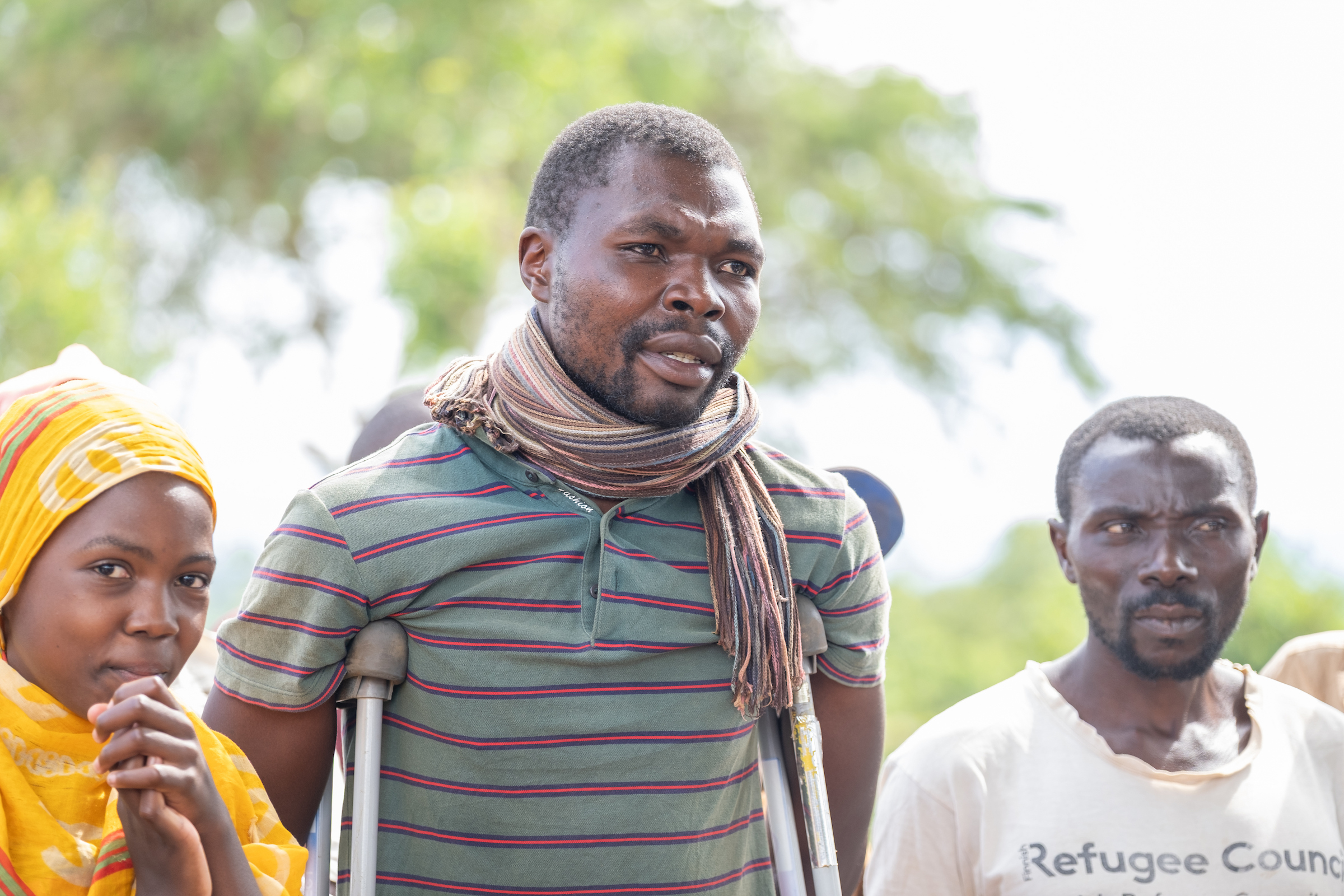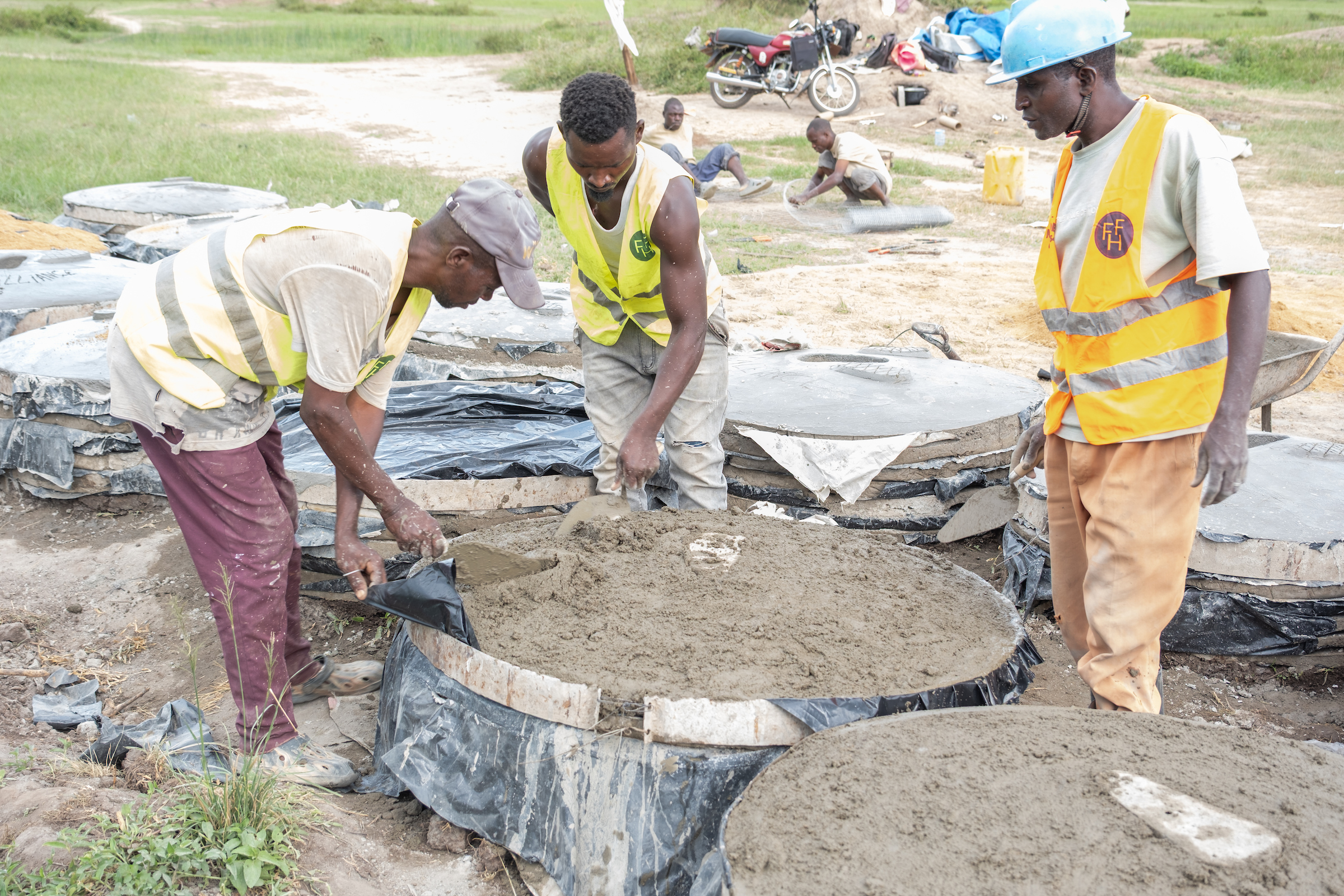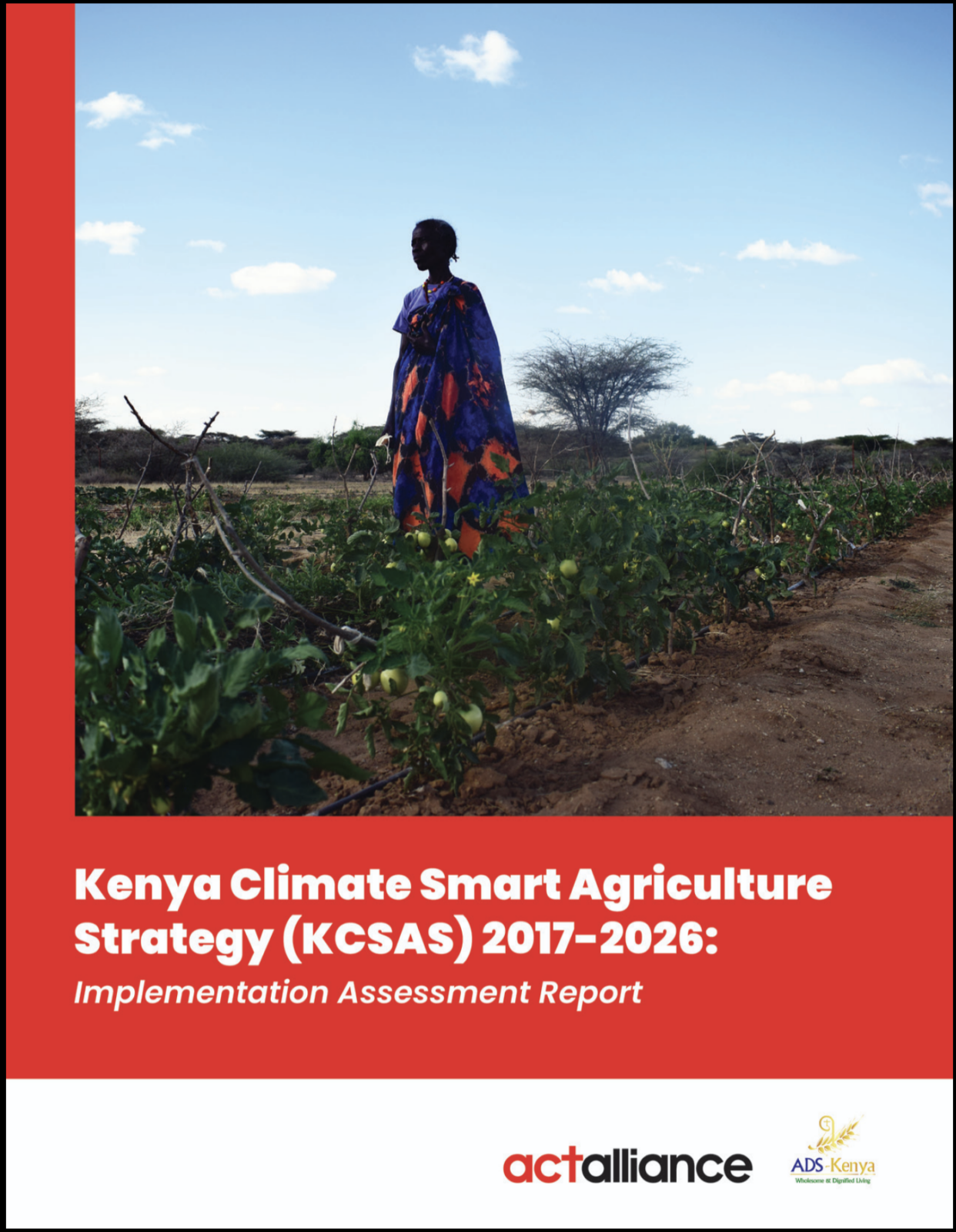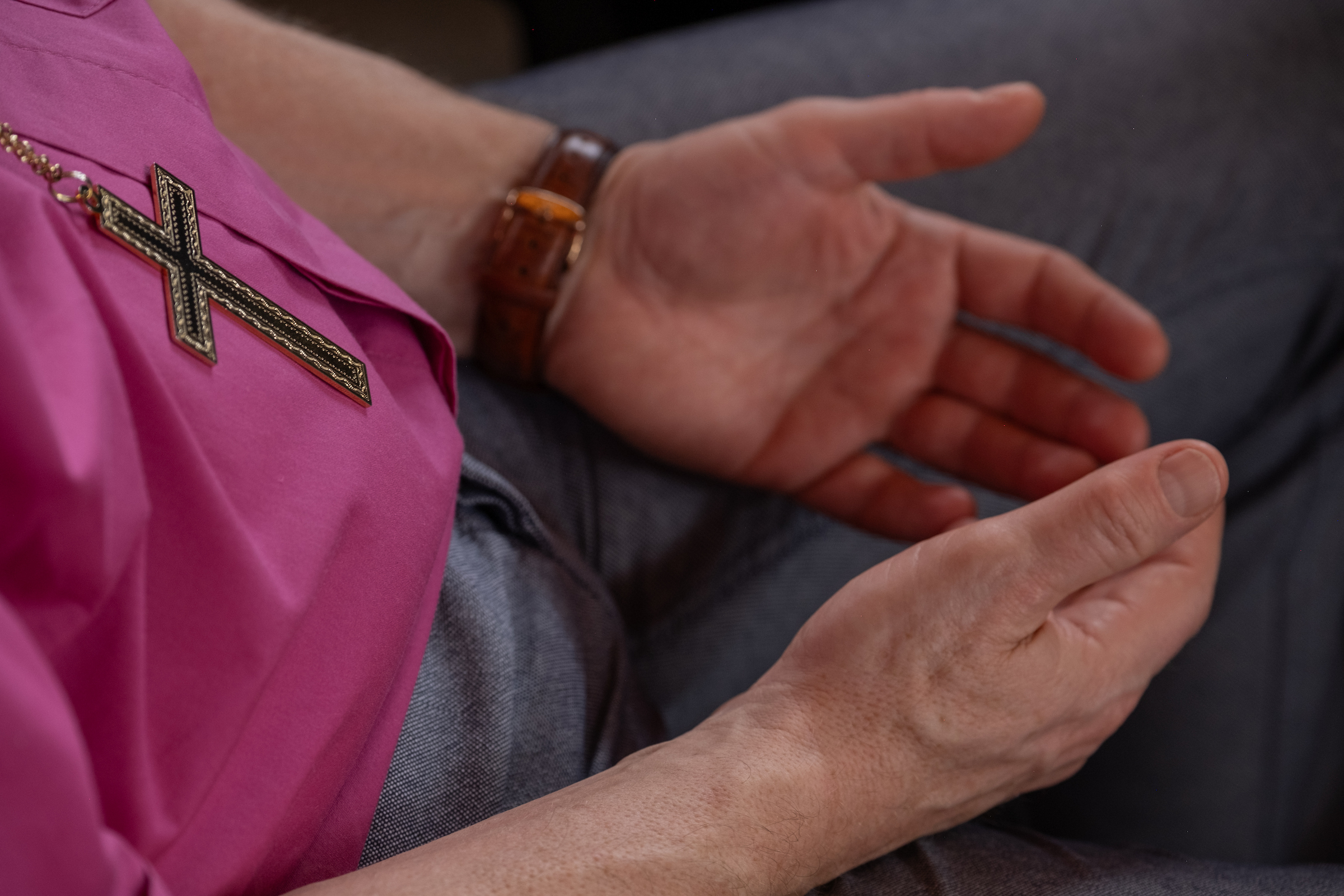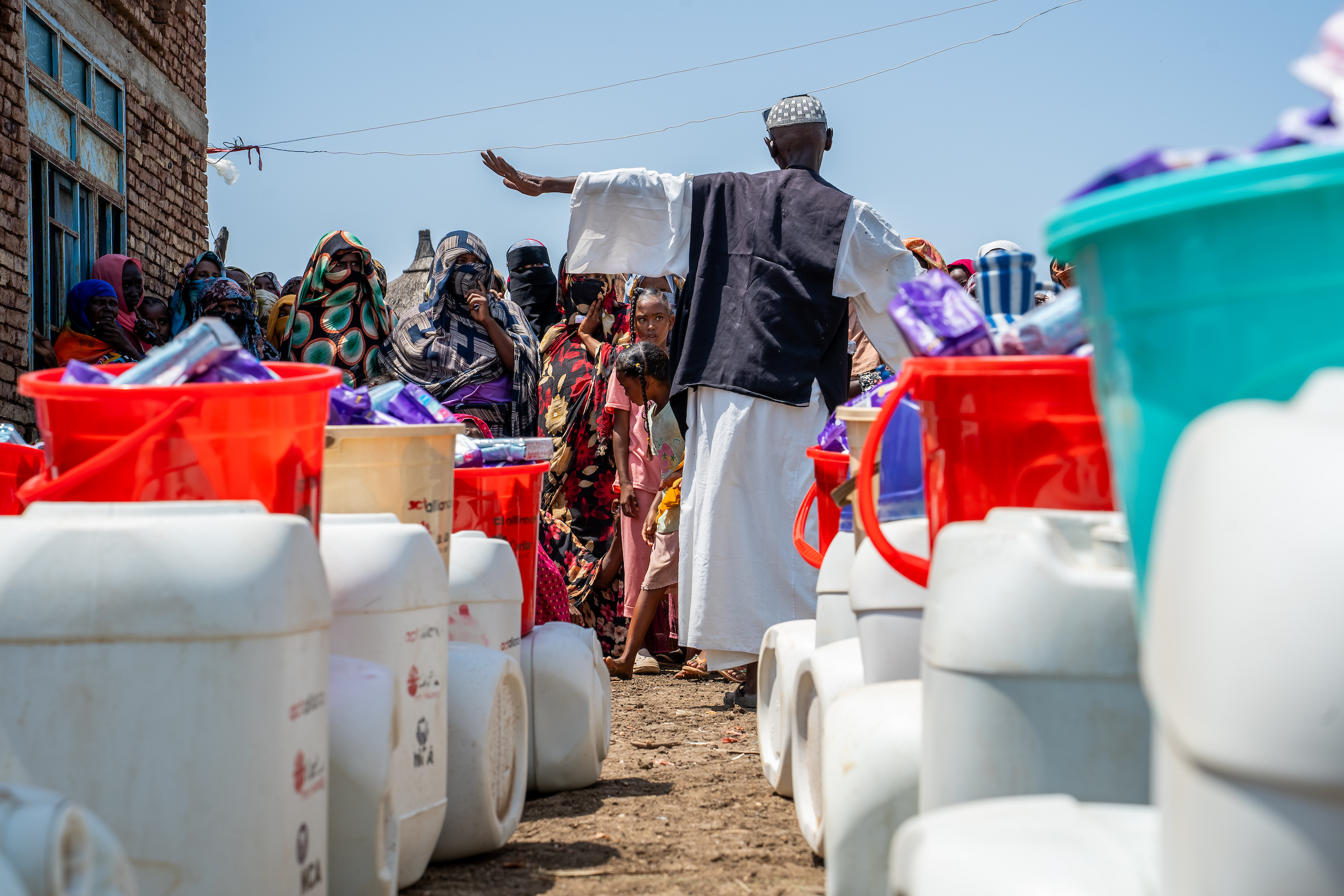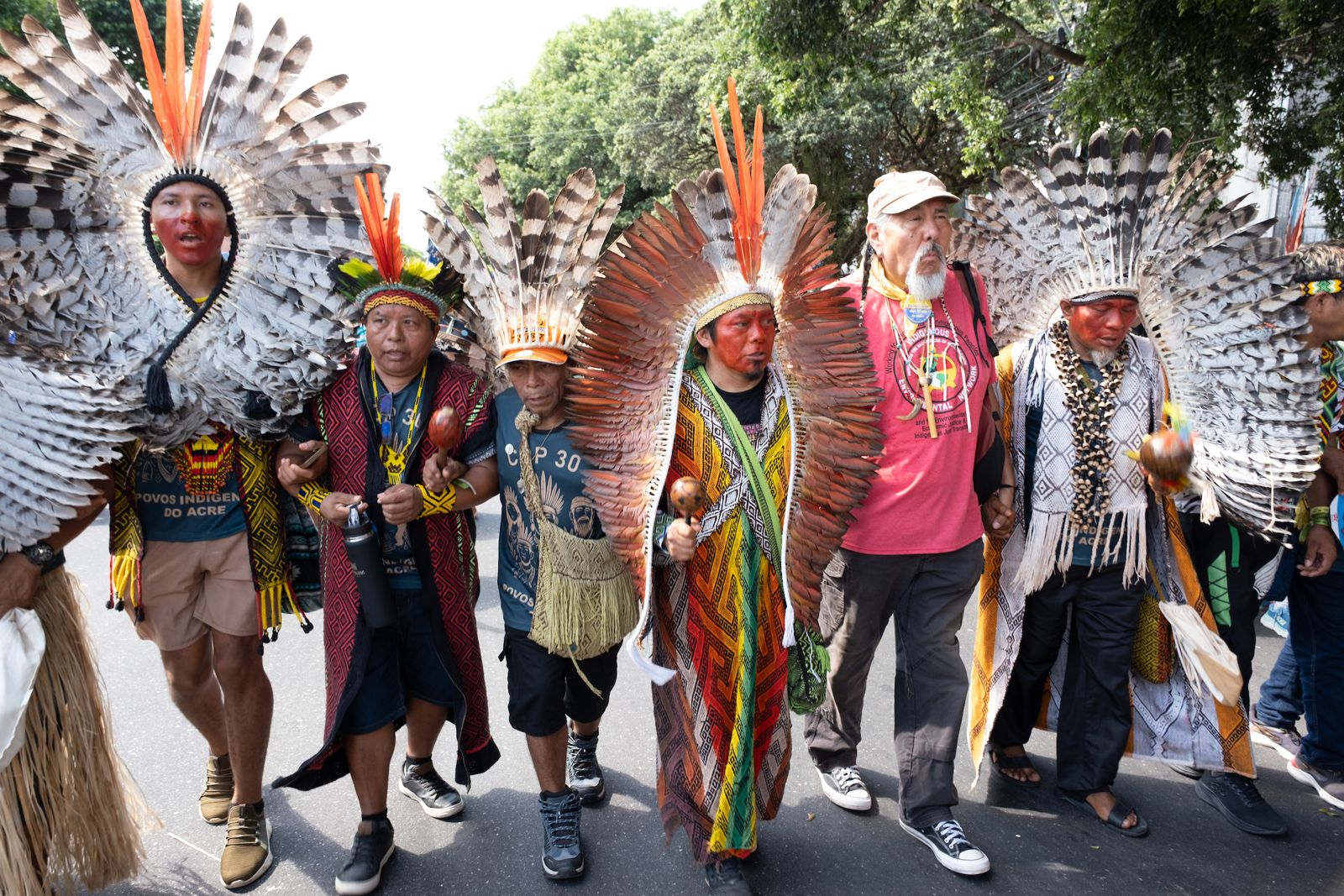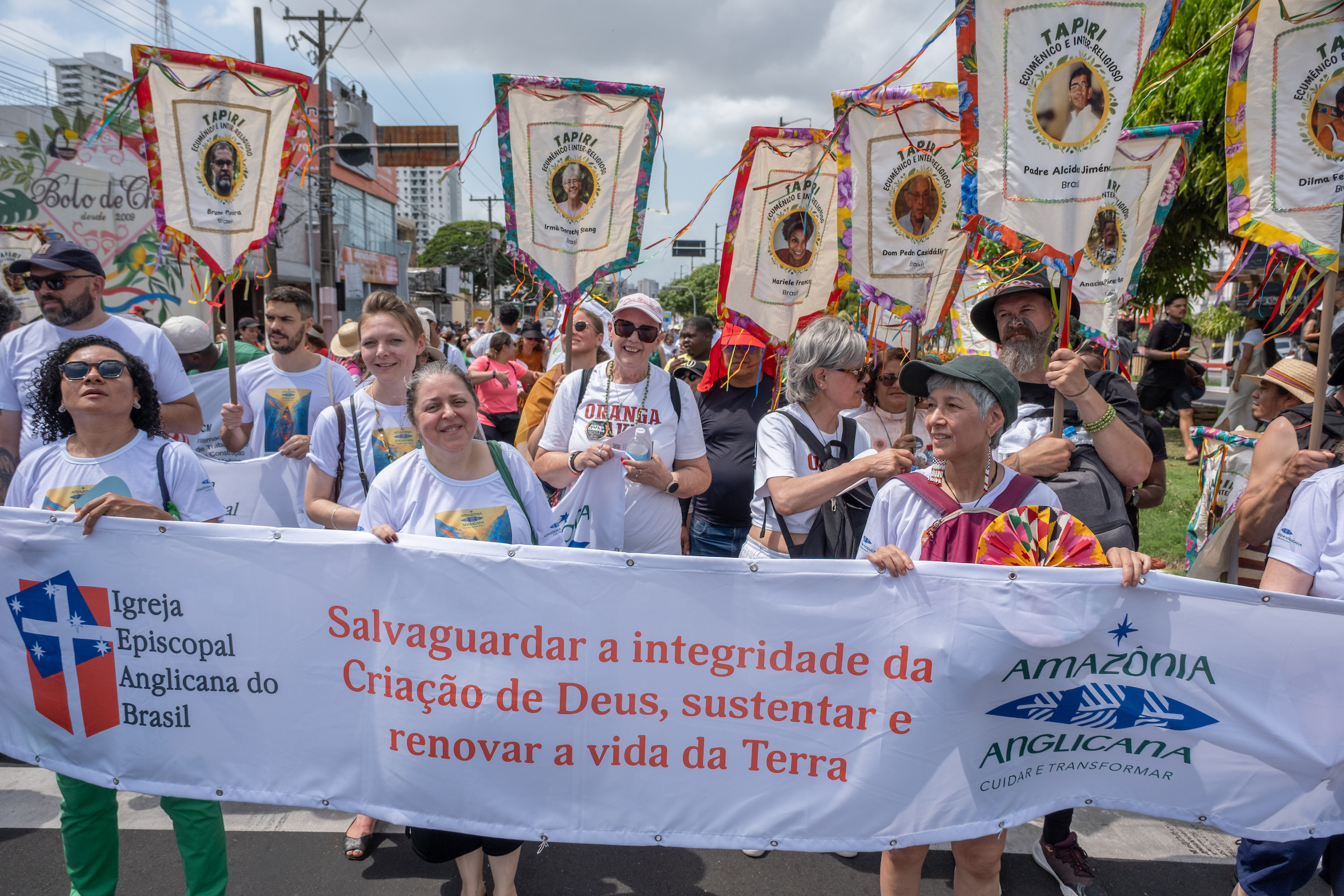The Democratic Republic of Congo has been embroiled in conflict and crisis for decades now, with very little attention paid by the rest of the world to the ongoing suffering of the Congolese people.
ACT Alliance members are responding to the ongoing crisis in eastern DRC , but also in Tanzania and Uganda through the regional ACT Appeal CEA241. This broader appeal allows ACT’s work with displaced people to be coordinated with IDPs within DRC and refugees in the other two countries. ACT’s work in each country is designed to meet the local needs and contexts while also providing a coordinated response to this ongoing and complex crisis.
Even amidst the growing needs, work in the region is being impacted by cuts to ODA from nations in North America and Europe which are directly impacting the humanitarian response that ACT Alliance and other organisations can provide.
“Conflict has caused massive displacement, over a very prolonged period in eastern DRC, with millions of people uprooted from their homes,” says Niall O’Rourke, ACT Alliance’s head of humanitarian affairs. “With displacement comes severe food insecurity and acute malnutrition.”
The DRC portion of the appeal includes three national members: BOAD– Bureau Œcuménique d’Appui au Développement-Leading the appeal, EELCO– The Evangelical Lutheran Church in Congo, and Église du Christ au Congo (ECC), along with Christian Aid. In Tanzania, national member TCRS– Tanganyika Christian Refugee Services is participating. And in Uganda, national member COU-Church of Uganda is joined by Lutheran World Federation-Lead, FCA-Finn ChurchAid, and HEKS-EPER.
The focus on national members’ role is part of ACT’s ongoing commitment to localisation, demonstrating that ACT puts actions behind its words and is working to increase the amount of humanitarian work being undertaken by local actors.
Each country in the appeal faces its own unique challenges and also has its own strengths and approach among the various ACT members in each Forum.
Conflict has caused massive displacement, over a very prolonged period in eastern DRC, with millions of people uprooted from their homes. With displacement comes severe food insecurity and acute malnutrition.Niall O'Rourke head of humanitarian affairs, ACT Alliance
Democratic Republic of Congo
There are about 5.3 million people internally displaced within the DRC, mostly in North Kivu and South Kivu provinces, displaced by the violence between M23 and the government.
Staff of ACT members working in DRC itself face the added burden of living within the conflict zone themselves. Since the armed group M23 took control of Goma, ACT member staff living there have to be home by 6pm for safety. They are living with the same stresses as the communities they are serving, but are continuing to put the needs of the most vulnerable ahead of their own.
BOAD conducted needs assessments with the communities they are supporting, and built programmes including income generation, multi-purpose cash assistance, provision of dignity kits and support for victims of sexual and gender-based violence.
EELCO has supported food security work in North Kivu, supporting internally displaced people to have enough good, healthy food to eat. They also supported students with school kits, helping them to stay in school even in these difficult times. Being able to maintain some normalcy and structure is very helpful for children experiencing upheavals like those caused by the violence in the DRC.
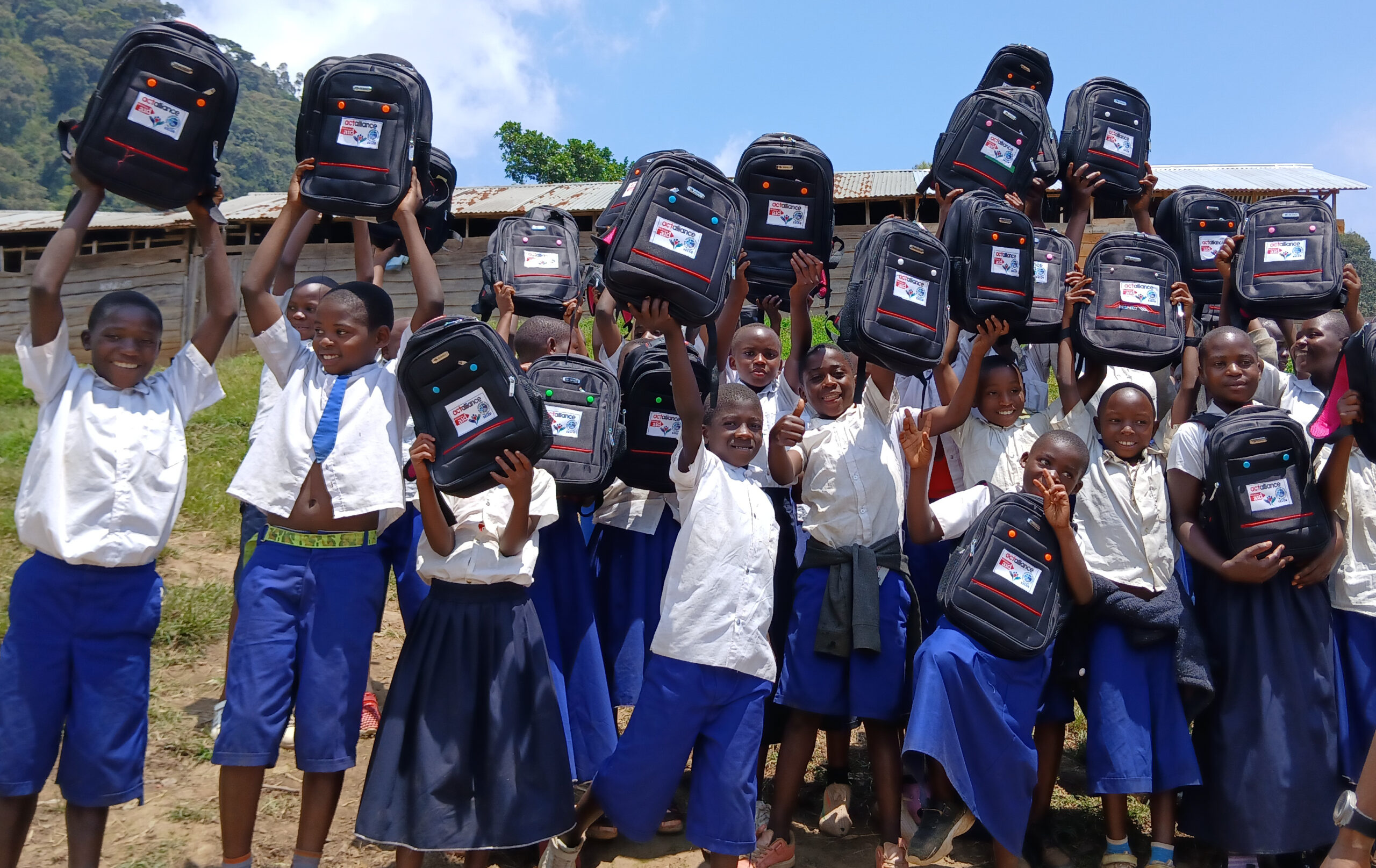
The impact of cash assistance
Angelique Uwineza is a mother of seven children from Sake, near Goma. When M23 began to bomb Sake, causing the Armed Forces of the DRC to flee, and the child of her neighbour was killed by a bomb, she fled with her husband and children on foot, taking nothing with them in their flight for safety.
They arrived hours later at a church, where they were allowed to sleep on the floor of a classroom. They received a bit of food and limited support, but had almost no food, and could not even get soap to clean themselves with.
Eventually the church needed the classroom again, but offered Angelique and her family a plot of land to build a shelter. She began to despair, “This announcement increased my constant negative thoughts to the point of imagining that the future held nothing good in store for me, as I wondered how I would find the tarpaulins and other materials needed to erect a makeshift shelter,” she recalls.
BOAD conducted a needs assessment and chose her family to receive a 90 USD cash token. “As soon as I took the 90 USD of BOAD assistance in my hand, I felt the joy inside me and when I left the distribution room, I went straight to buy a tarpaulin, shrubs and nails to build my shelter,” she said. “Once I’d finished building my shelter, I went out and bought a sewing machine pedal to continue learning how to cut and sew, and I bought a quantity of beans to sell in front of my shelter.”
Angelique uses the profits from selling the beans to buy soaps and other household necessities to care for her family.
As soon as I took the 90 USD of BOAD assistance in my hand, I felt the joy inside me and when I left the distribution room, I went straight to buy a tarpaulin, shrubs and nails to build my shelter.Angelique Uwineza mother of seven children living in the Democratic Republic of Congo
Tanzania
Tanzania is home to over 230,000 refugees, with most of them coming from Burundi and the Democratic Republic of Congo. ACT member Tanganyika Christian Refugee Services (TCRS) supports refugees in the Nyarugusu Refugee Camp, located in the Kasulu District of Kigoma Region, Tanzania.
The camp has challenges with sanitation and hygiene management, particularly as four or more families often have to share a latrine. Conflicts emerge among families about cleaning the latrines, and additional challenges include rising gender-based violence related to sanitation issues and open defecation, which causes serious public health risks.
To address these issues, TCRS is in the process of constructing 1800 additional family latrines, with over 300 already completed. In addition, TCRS is providing hygiene education and also distributing soap to families to allow them to practice what they learn.
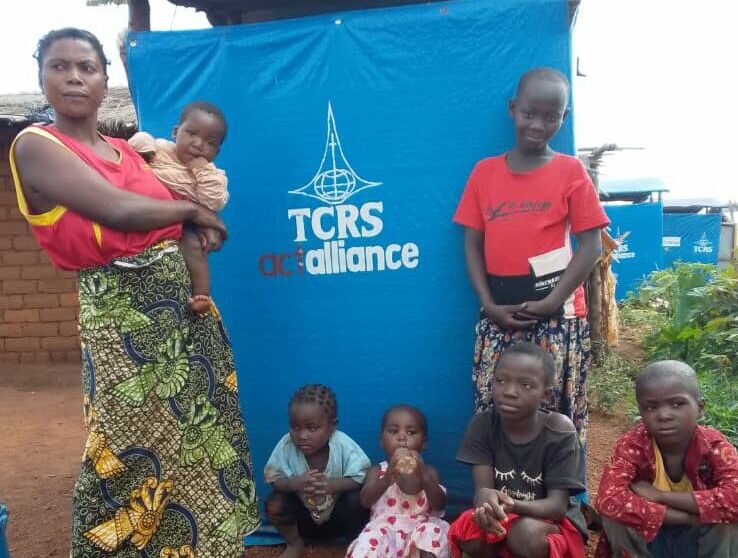
Latrines bring dignity and better health to families
Christina Athuman Nyongoro is a Congolese mother of six living in the camp. “Before we got our own latrine, we shared one with other families,” she explains. “It was a constant source of conflict. Every day, my children and I would argue with the other families about who was responsible for cleaning, who would use the latrine first, and when it would be cleaned.
“Now that we have our own latrine, there is no more fighting,” she continues.” We are in control of when and how we clean it. We don’t have to worry about the other families using it improperly or not cleaning it. My children also help, and they understand the importance of keeping the latrine clean.”
The peace and harmony that Christina speaks of is not just about the convenience of having a private latrine, but also about how it has fostered a greater sense of ownership and responsibility within the family. “The children are happy because they no longer have to wait for others to finish using the latrine.”
With the new latrine, Christina’s family no longer resorts to open defecation, a practice that was both dangerous and degrading. “Before, when the latrines were so far and shared by so many families, some people, including my children, would sometimes go into the bush because they couldn’t wait. It was unsafe and uncomfortable. But now, we have our own, and we can use it whenever we need to. The children no longer fear going to the latrine. This has contributed to a cleaner and safer environment for my family, as open defecation was a major health concern in the camp, contributing to the spread of diseases”.
The construction of a household latrine has also had a profound impact on the family’s hygiene practices. “We wash our hands regularly now, especially after using the latrine. Before, we didn’t always have the time or soap to wash properly. But with the soap distribution from TCRS, we are able to maintain better hygiene. My children have learned to wash their hands before eating, which has reduced the stomach pains and other illnesses we used to suffer from.
“The soap has helped us not only for handwashing but also for washing our clothes and personal items. The children are healthier now, and I don’t have to worry about their health as much,” she concluded.
Before we got our own latrine, we shared one with other families. It was a constant source of conflict. Every day, my children and I would argue with the other families about who was responsible for cleaning, who would use the latrine first, and when it would be cleaned.Christina Athuman Nyongoro Congolese refugee living in Tanzania
Uganda
The situation in Uganda is different in many ways, ranging from the political to the refugee population to the focus of the ACT Forum in the country. But what is not different is the need for response and the commitment of the humanitarians within ACT Alliance to meet those needs as well as possible with the available resources.
Refugees in Uganda have the legal right to work and also to movement within the country, which is not the norm in the region. Further, Uganda does not push refugees to return to their countries of origin, leading to refugee communities who have been in the country for decades in some cases, and forming neighbourhood communities in Kampala.
Despite these advantages for refugees in Uganda, the situation in 2025 is challenging. With cuts to Official Development Assistance (ODA) by many traditional donor nations, including the USAID cuts from the US government, resources are stretched very thin.
In the Nakivale area near the DRC border, UNHCR has had to cut back on staffing and services to refugees, and many NGOs have pulled out of the region entirely. On a monitoring visit in April 2025, ACT members were virtually the only NGOs seen with a presence in the area.
The ACT members are working closely with the UN and the Ugandan government in meeting the needs of refugees and the refugee community. In early 2025, LWF provided a number of solar powered street lights for the Kabazana refugee welcome centre. The Church of Uganda received a certificate of appreciation from UNHCR for their appeal to churches across the country for food, clothing, bedding and other necessities to support refugees in July 2025.
The ACT Appeal supports four members’ work in Uganda: Church of Uganda, FCA, HEKS/EPER, and LWF. These members are working in a range of areas including shelter, GBV, cash programming, education, protection, psychosocial support, and WASH.
Gender Based Violence and Protection
A reality of all humanitarian work is that women and LGBTQIA+ people are at higher risk because of their gender and/or sexuality. That vulnerability does not disappear even when they have reached the safety of a refugee welcoming country.
Janet fled to Uganda after her husband was killed in DRC. She and her seven children arrived in Nakivale area, and then used the supplies they were given to build a home on a plot of land provided by the Ugandan government. Unfortunately, the shelter she was able to build with a tarpaulin did not provide her protection from sexual predators, and she was raped.
That rape left her pregnant and HIV positive.
She moved back to the reception centre for her safety, and also to get access to anti-retroviral drugs and treatment to prevent the transmission of HIV to her unborn child.
The Church of Uganda (CoU) is working to combat GBV like that experienced by Janet. Their SASA programme uses a multi-pronged approach to change attitudes and in turn actions. Four different groups of champions have been trained by CoU to raise awareness of GBV and to work to address the causes of it.
First, faith leaders are trained to address the issue using their authority and their theological understanding. Second, male champions are trained to respond to GBV and to reach out to their fellow men to change attitudes and actions. Third, girls and women are trained to reach out to other girls and women to raise awareness of GBV and the protections that exist. Finally, community paralegals are trained to raise awareness of the Ugandan laws and teach about refugee rights.
Within the DRC appeal, CoU has trained 50 champions in each of the categories, 200 in all. These champions are bringing awareness and combatting the occurrences of GBV through their faith and cultural contexts, and thanks to their efforts more survivors of GBV are being referred to programmes to support them and attitudes around gender are changing.
Their SASA programme uses a multi-pronged approach to change attitudes and in turn actions. Four different groups of champions have been trained by CoU to raise awareness of GBV and to work to address the causes of it.
Cash/Shelter
HEKS/EPER has developed an innovative programme to meet several needs all at once.
In Juru, many refugees from DRC have settled on small plots of land provided by the government of Uganda, and have used tarpaulins from UNHCR to create simple shelters. These refugees want to make proper houses for themselves, but not all of them have the know-how or the physical ability to make bricks and build a home.
At the same time, there are trained workers from DRC who have fled as refugees into the area, who want to be able to earn money to support themselves and their families. Bahati Katizimane Inamkon is one such trained builder.
He receives cash for work from HEKS/EPER for his work making bricks and laying them to make permanent houses for elderly refugees or for refugees living with disabilities. He is able to work with dignity, practicing his skills, giving back to his community, and supporting his family.
At the same time, vulnerable refugees get a home that provides them with more safety and security than the temporary shelters they have built provide. It’s a win/win for everyone.
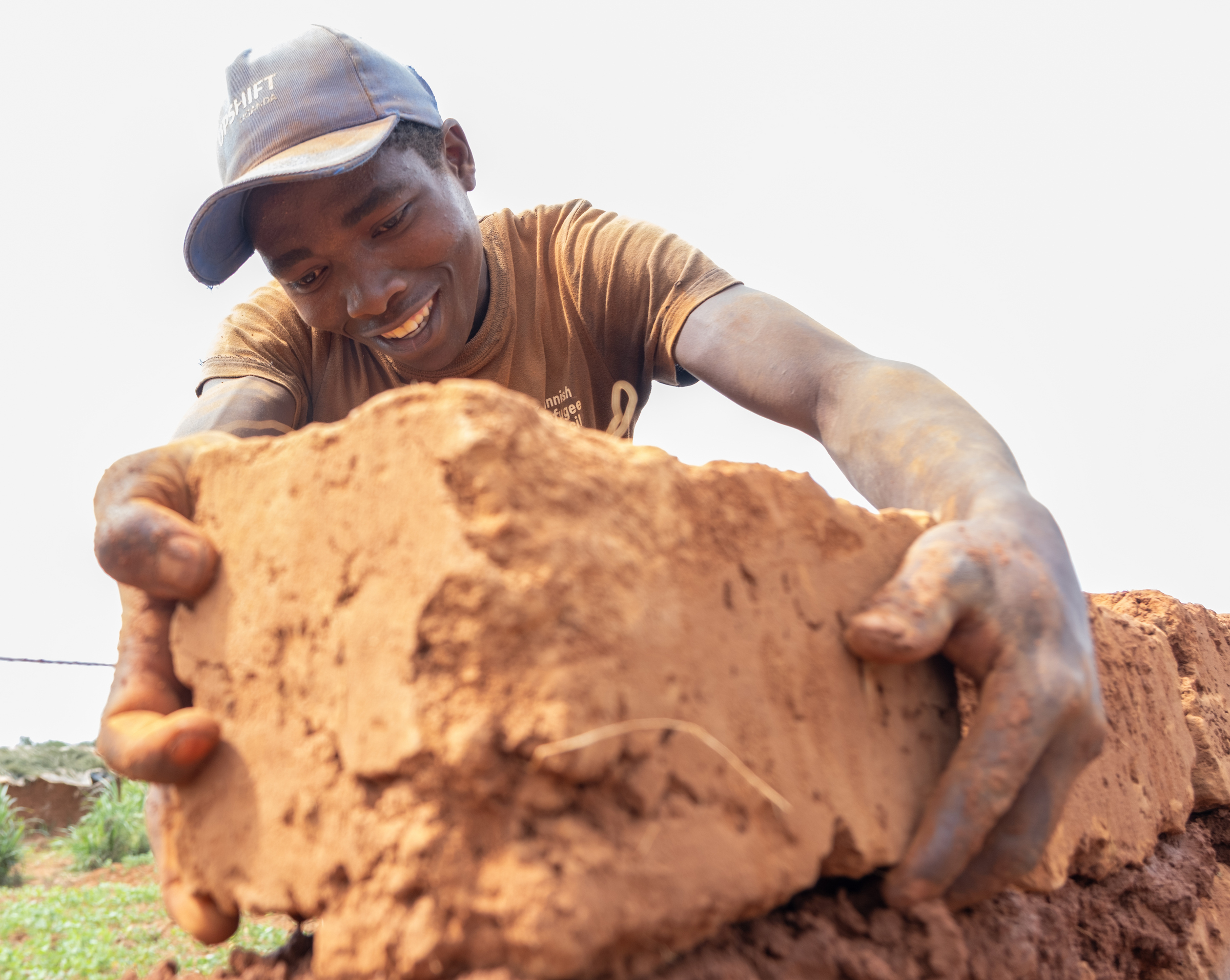
Water, Sanitation and Hygiene
Access to clean water, to sanitation, and to hygiene supplies and infrastructure are keys to health and survival. WASH is a key component of humanitarian response and refugee support, and the situation in Uganda illustrates that clearly.
In Rubondo, for example, ACT member the Lutheran World Federation (LWF) heard from the community of 70 families living there that they had problems getting water. They had to go to a swamp to get water, and their children at the least were not in school when they were sent to get that water kilometres away, and some faced much worse fates- some were raped, and others died in the process of getting water for their families.
In January 2024, LWF opened a clean water point in Rubondo, designed to meet the needs of the community. “We used to have to get water from the swamp, or from a long way away,” says Mulissa Solanje, a member of the water committee of Rubondo who collects money from community members to help keep the water pump operating. “Now we have no more water-borne diseases, we have water for drinking and cooking.”
The problem for Rubondo is that in the sixteen months from when the pump was opened until April 2025, the community had grown due to the influx of new refugees fleeing to Uganda, from 70 families to 800 families and the water resources are stretched to their maximum. Most families get water just twice a week, and the water is only turned on for an hour at a time in order to allow the natural watershed to replenish the stock the pump draws from.
In addition, residents say that they need soap, menstrual pads, and more water to further improve their WASH situation.
Nearby in Nakivale, LWF is using a different approach to different problems. Here, LWF is providing cash for work to a team of 15 young men who are making concrete slabs as latrine covers. These slabs are much more hygienic and easier to clean for families, and will improve health and sanitation conditions. The men are making 270 slabs for families to be distributed within one kilometre of the site where they work. Each slab takes about a day to make, 28 days for the concrete to cure, and will last about 30 years for the family who receives it.
We used to have to get water from the swamp, or from a long way away. Now we have no more water-borne diseases, we have water for drinking and cooking.Mulissa Solanje water committee of Rubondo
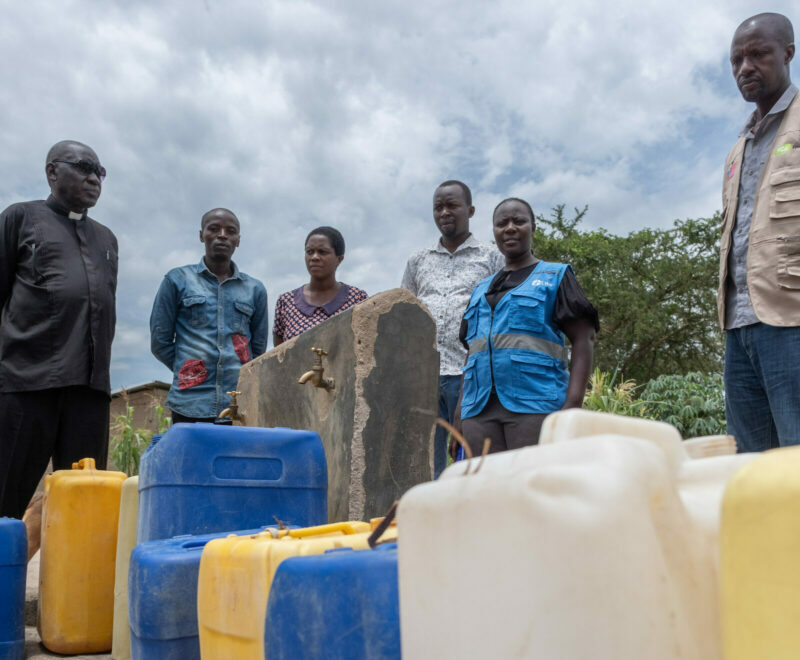
Education
Young refugees often face a range of impacts including protection, food security, psychosocial, and disruption of their education. This is as true for refugees in Uganda as anywhere else.
Finn Church Aid (FCA) and LWF have both been involved in meeting these needs through support of schools in the Nakivale area.
When the school in Rubondo opened in 2019, it had 14 students meeting under a tree. They had a dream of a beautiful school surrounded by green space and trees, where students could learn in safety and happiness.
Six years later, the school campus includes multiple buildings in the midst of a beautiful green space with many new trees. Now almost 650 students study at the school. Some of the senior students, including 19 year olds Safra and Eftar, discussed their experiences of the school.
Safra was one of the first 14 students there, and described how receiving school supplies, and the school getting lab equipment for chemistry, a skeleton for biology and other needed things have helped to bring in more students. “I appreciate that the school is lenient on school fees for families like mine. My mother is a single mother, and we live 2km from the school. It can be hard to pay all the fees,” she said.
Safra appreciates the safety of the girls’ compound at the school, where many of the girls sleep as it is more comfortable and secure than their homes. She wishes the boys could also have dormitories so they could stay on campus as well.
“Being able to go to school helps life feel more normal,” she said. “We build friendships in school and those friendships continue in the community and with friends at other schools.”
Safra appreciates all the science labs at the school as she aspires to become a doctor.
Eftar is very happy to be able to be at school, but points out the need to support other students with disabilities. “Parents often don’t support their children with disabilities,” he said. “so we need more support and care for students like me. Some need crutches or other supports. We should have scholarships for them.” He also pointed out the need for housing for the teachers. Eftar’s dream is to become a member of parliament and to be an ambassador for people with disabilities, to help support their dreams of empowerment.
Parents often don’t support their children with disabilities, so we need more support and care for students like me. Some need crutches or other supports. We should have scholarships for them.Eftar Student, champion for people living with disabilities, and aspiring MP
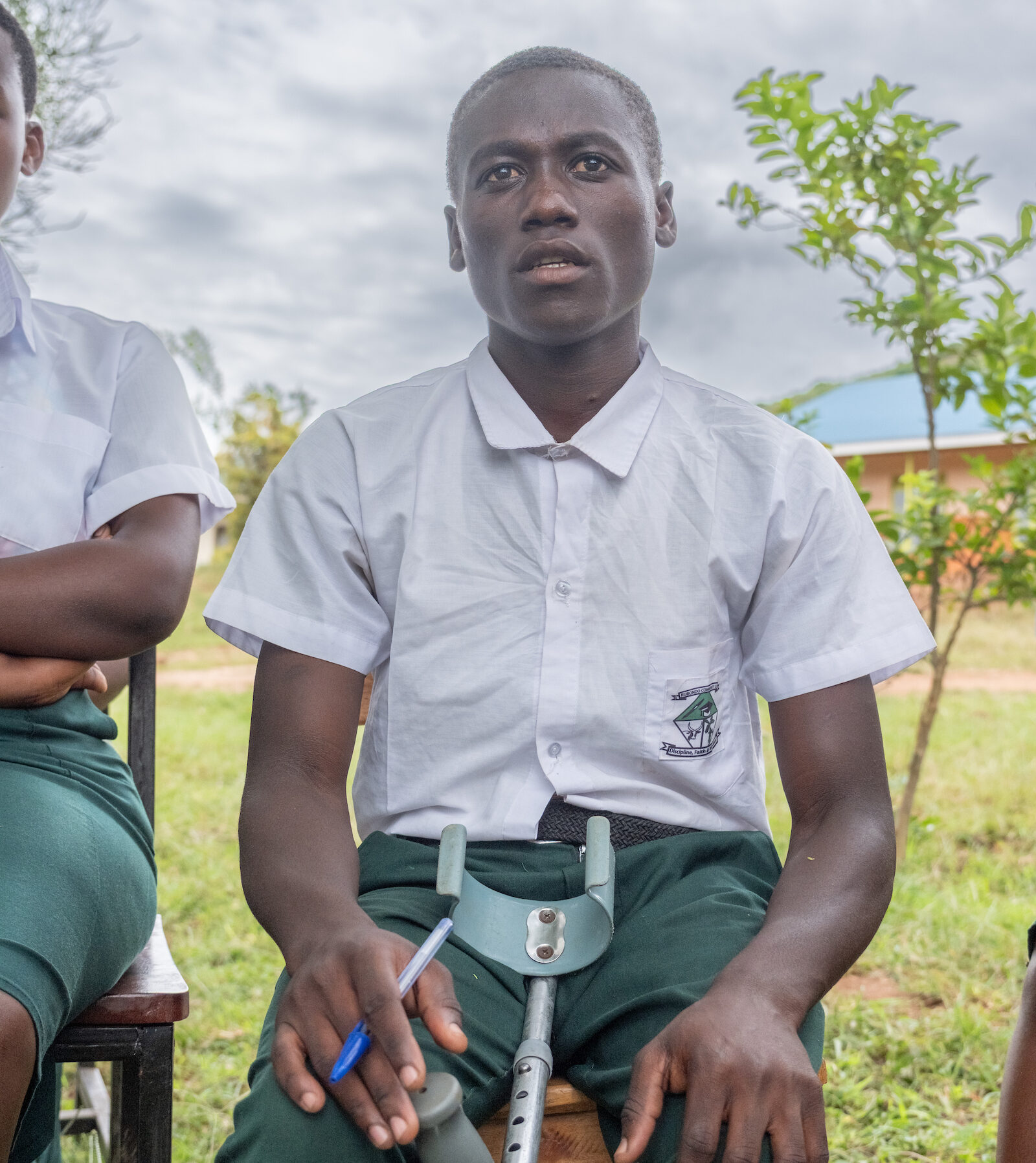
Support is needed
Despite all the strong work being undertaken by ACT’s local and international members in responding to the crisis in DRC, more support is urgently needed as humanitarian funding faces its worst crisis in decades this year. Every community where ACT members are working has more needs- needs for more and better shelters, for WASH, for psychosocial support, for schools, and much more.
ACT’s CEA241 appeal remains open for funding to support the incredible work happening in DRC, Tanzania and Uganda. “The ACT Alliance response in the Kivus is being led by local members and Christian Aid. Your support for the ACT Appeal CEA241 is critical to ensure ACT Alliance members can continue to provide lifesaving support in DRC and neighbouring countries ,” says Niall O’Rourke.
